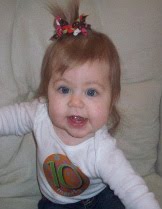To poison-proof your home:
- Store medicine, cleaners, paints/varnishes, and pesticides in their original packaging in locked cabinets or containers, out of sight and/or reach of children.
- Install a safety latch on child accessible cabinets containing harmful products.
- Purchase and keep all medicines in containers with safety caps. Discard all unused medication.
- Never refer to medicine as "candy" or another appealing name.
- Check the label each time you give a child medicine to ensure proper dosage.
- Never place poisonous products in food or drink containers.
- Keep coal, wood, or kerosene stoves in safe working order.
- Maintain working smoke and carbon monoxide detectors.
- Swallowed poison - Remove the item from the child and have the child spit out any remaining substance. DO NOT MAKE YOUR CHILD VOMIT!
- Skin poison - Remove the child's clothes and rinse the skin with lukewarm water for at least 15 minutes.
- Eye poison - Flush the child's eye by holding the eyelid open and pouring a steady stream of room temperature water into the inner corner.
- Poisonous fumes - Take the child outside or into fresh air immediately. If the child has stopped breathing, start CPR and do not stop until the child breathes on his/her own or until someone can take over.


































0 comments:
Post a Comment